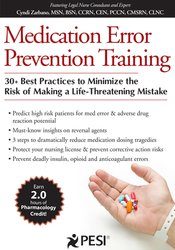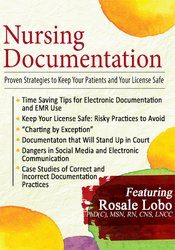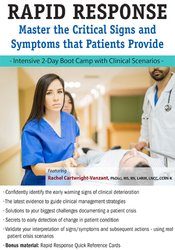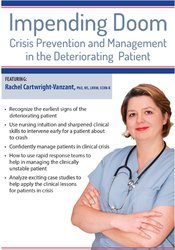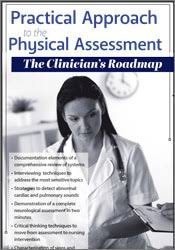🌟 New Year Offer 🌟
Celebrate 2026 with 30% OFF on all products! Use code: NEWYEAR2026. Hurry, offer ends soon!
During this in-depth, interactive seminar, you will have the opportunity to review real court cases and learn from the actual testimonies provided by nurses’ depositions. Rachel Cartwright-Vanzant
Rachel Cartwright-Vanzant – Nursing Documentation
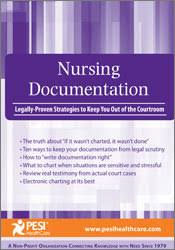
Course Description:
If you were required to testify in court in defense of the care you provided to a patient, would your documentation be adequate to protect you from legal liability? If the care you provided came under scrutiny months or years after it occurred, would your documentation enable you to accurately describe the standard of care delivered to the patient? If you are not sure, then you do not want to miss this program!
During this in-depth, interactive seminar, you will have the opportunity to review real court cases and learn from the actual testimonies provided by nurses’ depositions. Rachel Cartwright-Vanzant, an independent legal nurse consultant with over 28 years of clinical, management and consulting experience, will provide you with the information you need to ensure that your documentation, whether hand-written or electronic, depicts a level of care that meets applicable standards.
Learn how to identify and avoid risky documentation and integrate practices that will keep your license unblemished. What you learn will be immediately applicable to your practice and may keep you out of the courtroom.
Objectives:
Upon completion of this self-study package, you will be able to:
- Describe the application of the Nurse Practice Act/Laws to documenting care of patients.
- List ten ways to keep your documentation notes and charts out of the courtroom.
- Summarize the common documentation mistakes and how to avoid and/or correct them.
- Integrate the correct practices into your documentation notes to keep your license unblemished.
- List at least three ways to safeguard electronic documentation.
- Compare and contrast the different forms of nursing documentation and how they are used in the courtroom.
- Utilize actual medical malpractice cases to learn how to improve your documentation.
- Demonstrate how to document precisely and completely when situations are sensitive and/or stressful.
Would you like to receive Rachel Cartwright-Vanzant – Nursing Documentation ?
Outline:
- Setting the Stage
- Many people read medical records during a lawsuit
- Medical records are just as important as testimony
- Legal and Ethical Implications of Documentation
- Purpose of the medical record in the courtroom
- “Get it right the first time”
- Standards of documentation
- How to recognize deviations from the Standard of Care
- Risk Management & Documentation
- Incident reports
- Admissible Forms of Nursing Documentation
- Common documentation mistakes
- Physician orders
- Assessment
- Plan of Care
- Medications
- Interventions
- Difficult, stressful or sensitive situations
- Patient education & responses
- Other formats of documentation
- Nursing Charting Systems
- Narrative
- SOAP
- PIE charting
- Focus charting
- Charting by exception
- Considerations when using flow sheets
- Working with computerized medical records
- Avoiding Legally Risky Documentation
- Credible evidence
- Recording events objectively
- Maintaining factuality & thoroughness
- Avoiding ambiguity
- Avoiding bias
- Abbreviations to avoid
- Late entries
- Personal notes
- Correcting errors
- Documentation & Bioethical Dilemmas
- Code of ethics
- Telling the truth
- Universal principles of biomedical ethics
- ANA code for nurses
- End-of-life issues
- Informed Consent & Therapeutic Privilege
- Malpractice and Documentation
- Absence of information
- Falsifying, tampering or covering up
- Consequences of tampering
- Forensic Document Examiner’s role in record review
- Analyze a Real Case Scenario
Course Features
- Lecture 0
- Quiz 0
- Duration Lifetime access
- Skill level All levels
- Language English
- Students 0
- Assessments Yes

